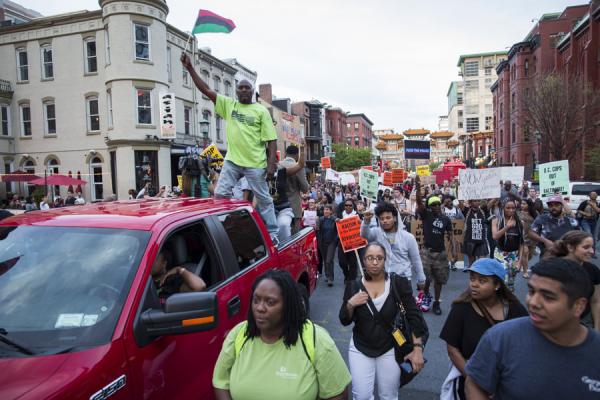As a student at a Lutheran seminary in Chicago, I find myself observing the news and events surrounding Freddie Gray’s death with an Easter lens.
I keep going back to the Gospel from the Sunday after Easter — the story of good old doubting Thomas. This text is assigned every year after Easter, but this year it stands out more than ever as the news stories pour out the all-too-familiar story of young African American males dying long before their time.
In the story, Thomas doesn’t believe that Jesus visited the other disciples while they were locked in a room out of fear for their safety. Thomas tells the disciples that unless he sees Jesus for himself and touches the wounds that accompanied Jesus’ violent and traumatic death, he will not believe. Remarkably, Jesus appears again, and so, Thomas finally believes — and we are taught a gentle but firm lesson. In Jesus’ words, “Blessed are those who have not seen and yet believe.”
But this text offers so much more than a lesson on faith and doubt, especially in light of Freddie Gray’s tragic death and the riots surrounding his funeral. By inviting Thomas to see and touch his wounds, Jesus shows us how to heal from the traumas that infect and fester in our lives and communities. Jesus compassionately instructs Thomas to put his finger in his hands and to put his hand in Jesus’ sides, knowing that when Thomas does this Thomas will recognize and know the risen Christ.
Ultimately, Jesus shows us that our wounds do more than mark us — they connect us. Jesus knows that through the touching of his wounds, Thomas will be forever connected to him, doubts and all. Jesus knows that we must let our scars speak. In this beautiful, intimate encounter with Thomas, Jesus teaches us to let our wounds show and be touched so we too can know peace. Peace cannot come to us until we have the courage to proudly bare our scars and connect with one another through our wounds. Until then, we, like Thomas, will be left standing in our doubts and anxieties.
I will not pretend to fully understand the complex circumstances surrounding the death of Freddie Gray and the riots in Baltimore. But I have to wonder what would happen if we followed Jesus’ instructions to Thomas. What if instead of ignoring bystanders’ cries for Freddie Gray to receive medical treatment, the police had reached out their hands and held an inhaler for Freddie Gray? What if all the people of Baltimore had put their hands on Freddie Gray’s injured spine? What if the police force in Baltimore had reached out for the wounds of grief deeply gnawing within the rioting crowds? What if the crowds had placed their hands into the wounds of the injured police officers?
What is it going to take for us to reach out and touch the wounds of our neighbors? When are we going to stop trying to hide from our wounds and instead offer them the space and air to heal and breathe? How will proudly baring our scars and telling their stories transform our world?
Indeed, our scars and their stories have the power to transform our lives and communities. We must never forget this. No matter what injuries worldly powers cause us to incur, we must muster the courage to invite others into these scars even before they ask. Only then will our communities finally experience the peace of being known and connected.
Elise Scott is a senior at Lutheran School of Theology at Chicago, studying for her Masters of Divinity. In addition to her love for discovering the many ways God’s grace breaks into the world, Ms. Scott enjoys reading, writing, travelling, exploring, and spending time with friends. She is formerly a practicing attorney.
Got something to say about what you're reading? We value your feedback!
